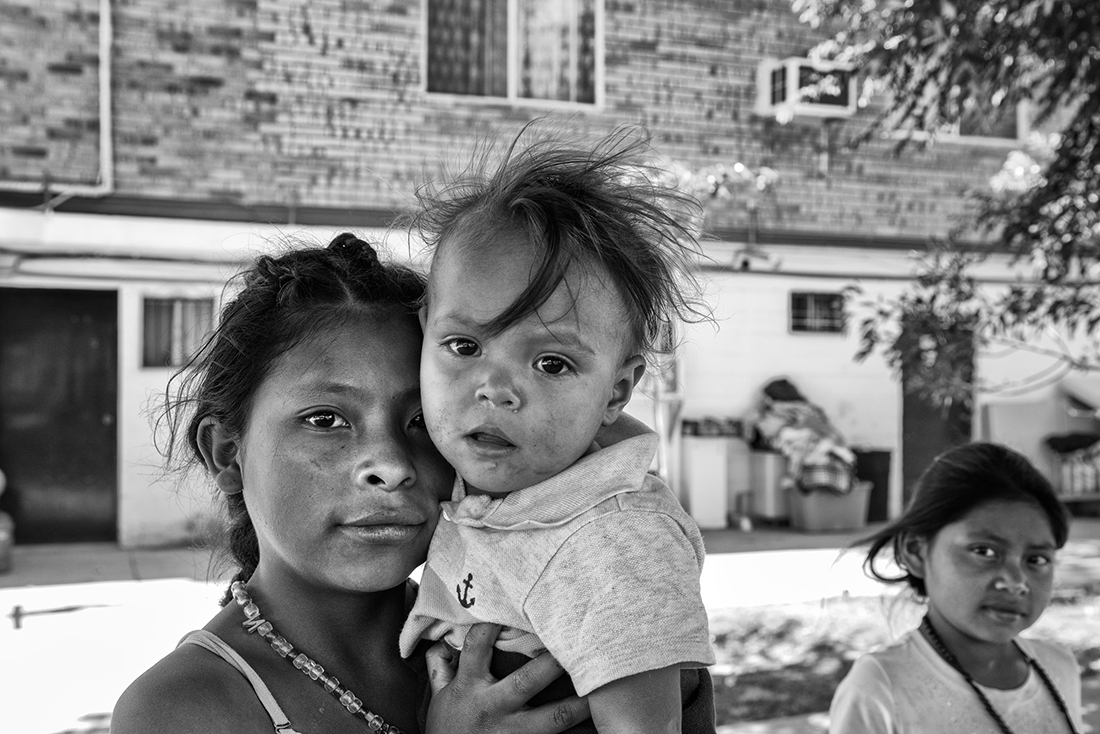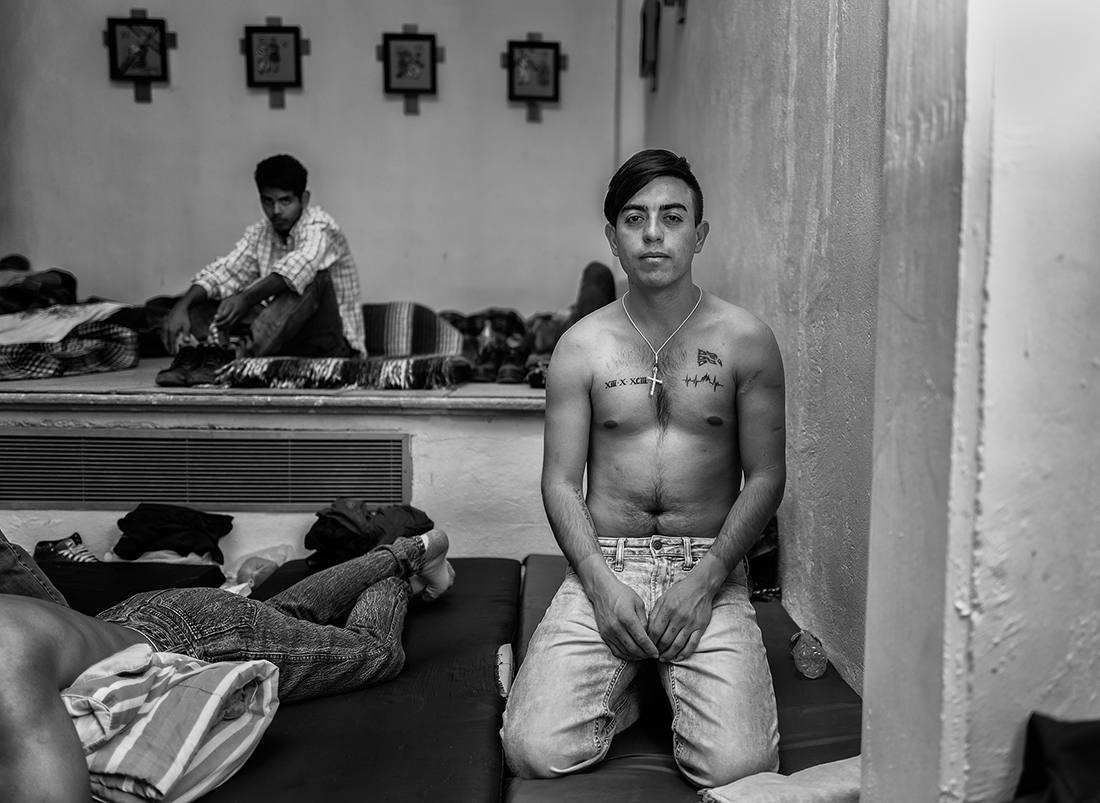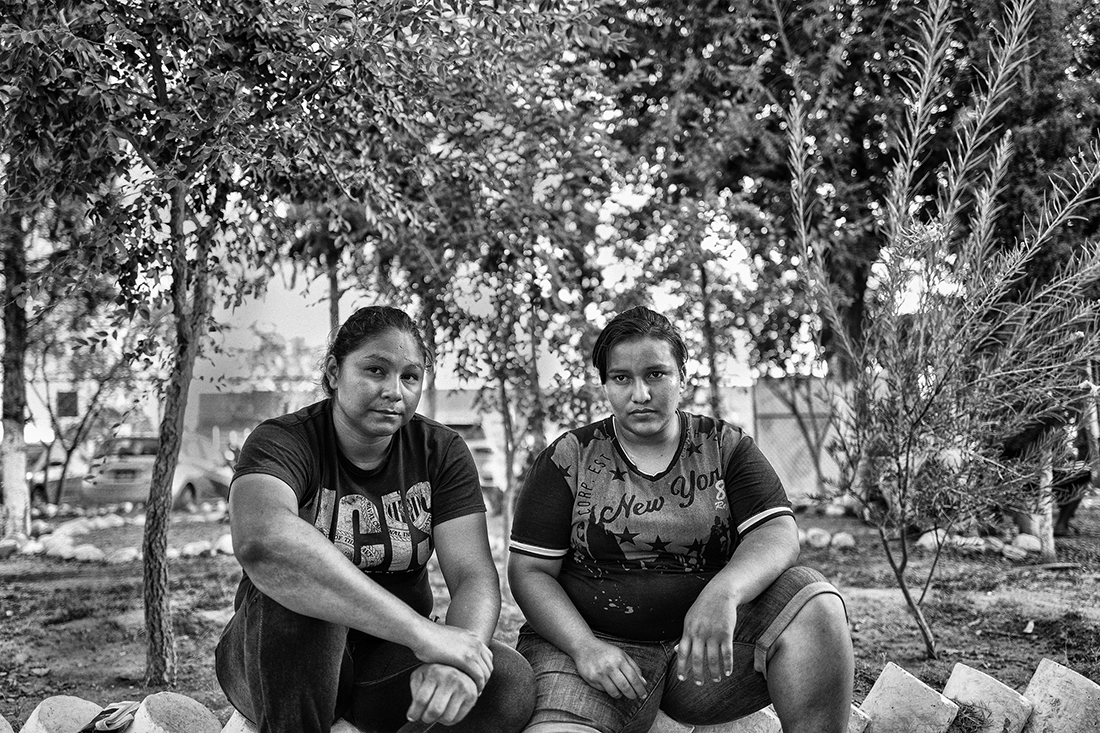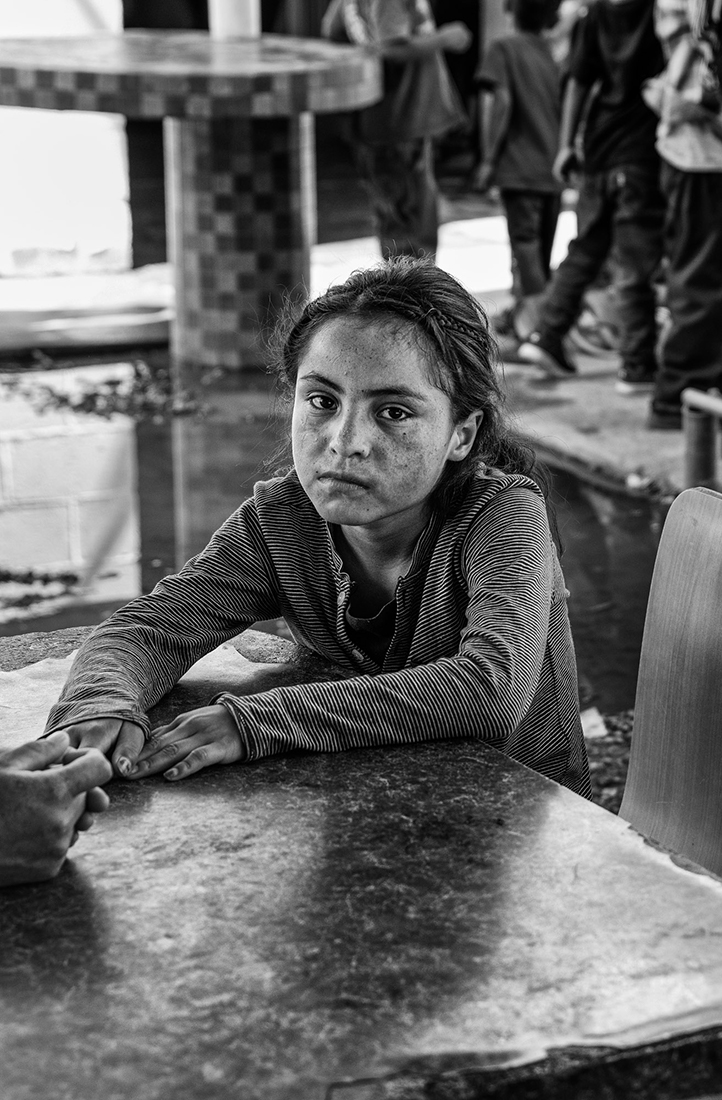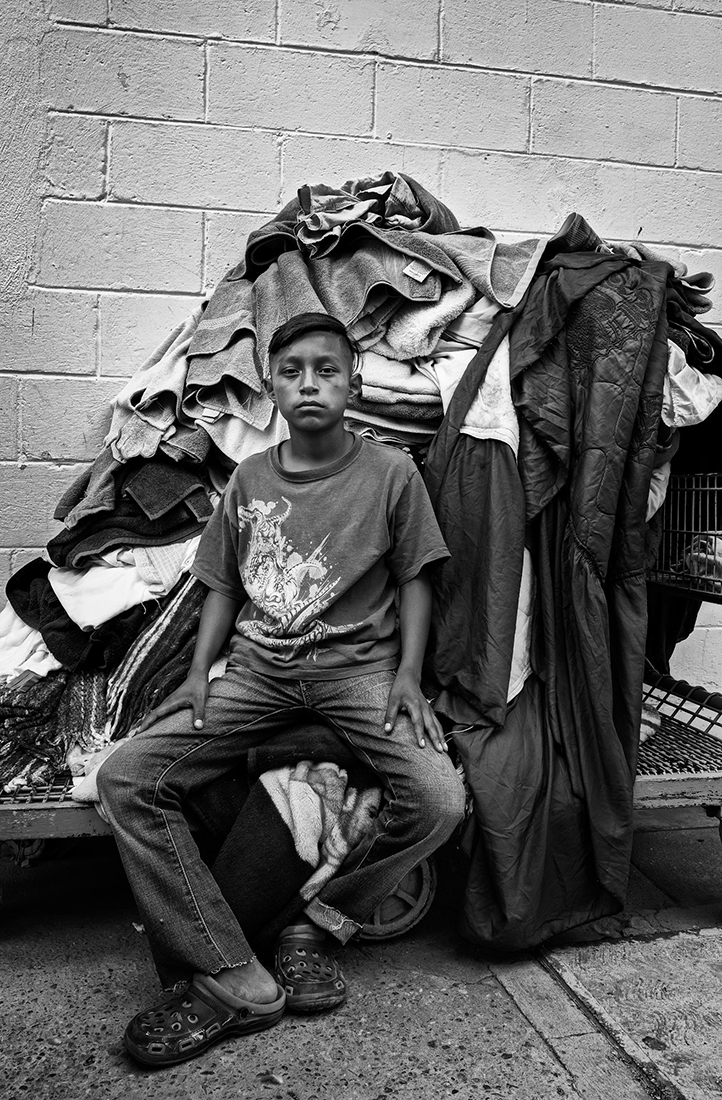honorable mention
Ada Trillo united states
title
If Walls Could Speak
I shot many of the portraits in this series while visiting Casa del Migrante, a Catholic-run migrant shelter in Juárez Mexico. Nestled along a dusty dead-end street deep within the sprawl of Juárez, the Casa provides food, shelter, healthcare, and other services. The scenes within—of friends chatting, kids laughing, and three meals a day—stand in stark contrast with life for many migrants outside the shelter’s gates, where death may very well be the least of their worries. Rape, kidnapping, and extortion of vulnerable refugees are daily occurrences in Juárez. The Casa houses approximately 400 asylum-seekers, most of whom were deported when the United States' "Remain in Mexico" policy took effect in January of 2019; they represent a small percentage of the hundreds of thousands of people affected by the ruling. The appearance of calm inside the shelter belies a deep sense of anxiety and fear; asylum-seekers are stranded in limbo, waiting for their turn to ask, again, for refuge in the United States.
back to gallery
entry description
IF WALLS COULD SPEAK is a glimpse into the besieged hopes, harsh uncertainties, and blunt realities—but also the enduring dignity—of Central American asylum-seekers forced into a cruel and dangerous waiting game by the "Remain in Mexico" policy. The individuals and families in these photographs have experienced unthinkable traumas and faced impossible decisions. I hope that viewers here in the United States can begin to understand the odysseys many have undertaken to provide a brighter future for themselves and their children – only to be mistreated and sent back across the border to one of the most dangerous cities in North America to be a refugee.I shot many of the portraits in this series while visiting Casa del Migrante, a Catholic-run migrant shelter in Juárez Mexico. Nestled along a dusty dead-end street deep within the sprawl of Juárez, the Casa provides food, shelter, healthcare, and other services. The scenes within—of friends chatting, kids laughing, and three meals a day—stand in stark contrast with life for many migrants outside the shelter’s gates, where death may very well be the least of their worries. Rape, kidnapping, and extortion of vulnerable refugees are daily occurrences in Juárez. The Casa houses approximately 400 asylum-seekers, most of whom were deported when the United States' "Remain in Mexico" policy took effect in January of 2019; they represent a small percentage of the hundreds of thousands of people affected by the ruling. The appearance of calm inside the shelter belies a deep sense of anxiety and fear; asylum-seekers are stranded in limbo, waiting for their turn to ask, again, for refuge in the United States.
about the photographer
Ada Trillo is a Philadelphia-based photographer, native to the Juarez-El Paso binational metroplex. In her work, she focuses on borders of inclusion and exclusion as they are experienced through people in sex trafficking, climate and violence-related international migration, and long-standing borders of race and class. Through the elements of documentary and fine art photography, Trillo lays bare our common humanity and dignity and brings attention to the impact borders have on exploited and marginalized people by amplifying their voices. Trillo’s work is in the permanent collection of the Philadelphia Museum of Art. She is the recipient of the Female In Focus 2020 best series award and was recently featured in The Guardian, Vogue, Smithsonian Magazine, and Mother Jones, among other publications. She has also been awarded The Me & Eve Grant with the Center of Photographic Arts in Santa Fe and received First Place in Editorial with the Tokyo International Foto Awards. Trillo has exhibited both nationally and internationally in New York City, Philadelphia, Luxembourg, England, Italy, and Germany. She holds degrees from the Istituto Marangoni in Milan and Drexel University in Philadelphia.back to gallery

